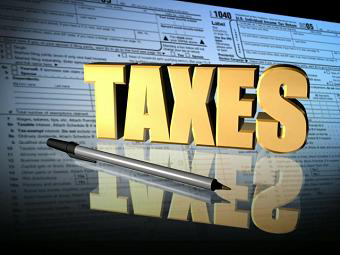Suppose one of your clients has his or her sights set on obtaining an MBA or another advanced degree. Usually, it takes significant time and effort to achieve this goal, especially if the degree candidate is currently working on a full-time or part-time basis. But earning the degree could be well worth the “blood, sweat and tears” from a monetary standpoint.
How about the tax angles? Specifically, can a taxpayer pursuing this line of study write off the costs as business education? You’ve heard about fuzzy math but this is fuzzy tax law. The rules are open to interpretation on a case-by-case basis.
Let’s take a closer look. Under the general parameters, you can deduct the cost of education as a business expense only if (1) the education is required by your employer or by law to keep your current job or (2) the education maintains or improves skills needed in your present line of work. Conversely, no deduction is allowed if the education is either needed to meet the minimum educational requirements of your current trade or business or if it qualifies you for a new trade or business.
It’s that last part of the test that often clouds the issue. Does an advanced degree qualify you for a new trade or business? If it does, you can’t deduct the cost of the courses. On the other hand, if the degree is merely improving the skills needed in your current job, the tax law says you qualify for the deduction.
Confusing, right? Unfortunately, there’s been little clarity from the courts. In fact, the Tax Court reached two opposite conclusions in two recent cases.
Case #1: The taxpayer had worked as a registered nurse (RN) for more than two decades at a variety of hospitals and medical facilities. After taking courses online from an accredited university, she graduated with an MBA in health care management. The Tax Court ruled that the advanced degree did not qualify her for a new trade or business. It may have improved her skillset, but she was already performing the tasks of her chosen profession. Therefore, she can deduct the education expenses (Singleton-Clarke, TC Summary Opinion 2009-182).
Case #2: After graduating from college, the taxpayer worked for a healthcare distribution company, as a payroll processor and at a retail pharmacy store. Then he enrolled in an MBA program with a concentration on finance. He contended that he was in the business of selling pharmaceuticals and that the MBA merely enhanced his skills. However, the Tax Court ruled that he had no established business. Furthermore, it noted that his employers didn’t require him to obtain an MBA. Therefore, he can’t deduct the education expenses (Hart, TC Memo 2013-2789).
If a taxpayer does manage to qualify for business education deductions, he or she can write off the cost of tuition, books, supplies, lab fees and similar items; certain transportation and travel costs; and other related expenses like costs of producing term papers or school projects. The expenses are generally claimed as miscellaneous expenses on Schedule A, subject to the usual floor of 2 percent of adjusted gross income (AGI). Advise your clients accordingly.
Thanks for reading CPA Practice Advisor!
Subscribe Already registered? Log In
Need more information? Read the FAQs
Tags: Income Taxes





